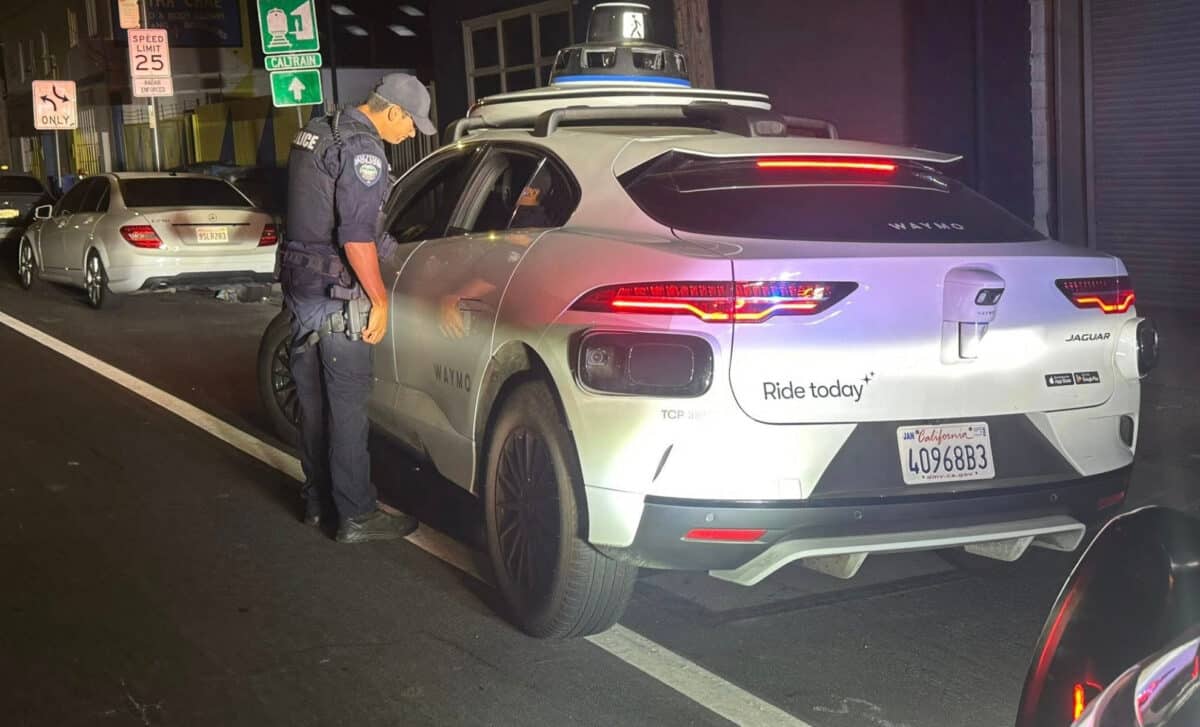On Friday evening, police in San Bruno were conducting a state-funded DUI patrol aimed at identifying and removing impaired drivers from the road. During the operation, a fully autonomous Waymo vehicle executed an illegal U-turn at a traffic light—right in front of officers. The vehicle, which did not have a human driver or any passengers on board, was promptly pulled over.
The incident left police with no one to question and no legal framework for issuing a citation. “That’s right… no driver, no hands, no clue,” the San Bruno Police Department wrote in a social media post.
After realizing the vehicle was completely unmanned, officers contacted Waymo, the company behind the all-electric self-driving taxi, to report what they called a “glitch.” According to the New York Post, police wrote that a ticket could not be issued because “our citation books don’t have a box for ‘robot.’”
No Fine, but Legislation Is Under Discussion
Since current traffic laws require a human driver to be responsible for infractions, no formal penalty could be applied in this case. Yet the situation has sparked renewed attention to the regulatory void surrounding autonomous vehicles. In their public statement, San Bruno police noted that legislation is in development that would allow law enforcement to formally notify companies like Waymo when their vehicles commit traffic violations.
The department added that the vehicle’s behavior was reported in the hope that future software updates will prevent similar incidents. For now, however, these types of traffic violations by driverless cars are effectively unpunishable under existing laws.
Waymo Acknowledges the Issue
In response to the incident, Waymo confirmed it was investigating what happened. “Waymo’s autonomous driving system, the Waymo Driver, is designed to respect the rules of the road,” the company said in a statement. “We are looking into this situation and are committed to improving road safety through our ongoing learnings and experience.”
The event is part of a broader rollout of Waymo’s autonomous fleet, which currently operates in San Francisco, Los Angeles, Phoenix, Austin, and Atlanta. The company also plans to launch in Miami later this year and in Washington, D.C. in 2026. Meanwhile, early-stage testing began in New York City in August, although human drivers remain behind the wheel during that phase.
Unclear Accountability Raises Safety Questions
While no harm occurred during the San Bruno incident, it highlights a growing tension between technological advancement and legal responsibility. Traditional traffic enforcement relies on identifying and penalizing human behavior. In this case, officers had no one to ticket or question, leaving only a report to the company as a next step.
According to the San Bruno Police Department, “Whether it’s drivers, passengers, or even driverless cars, we’ll continue to do our part to keep San Bruno’s streets safe.”









